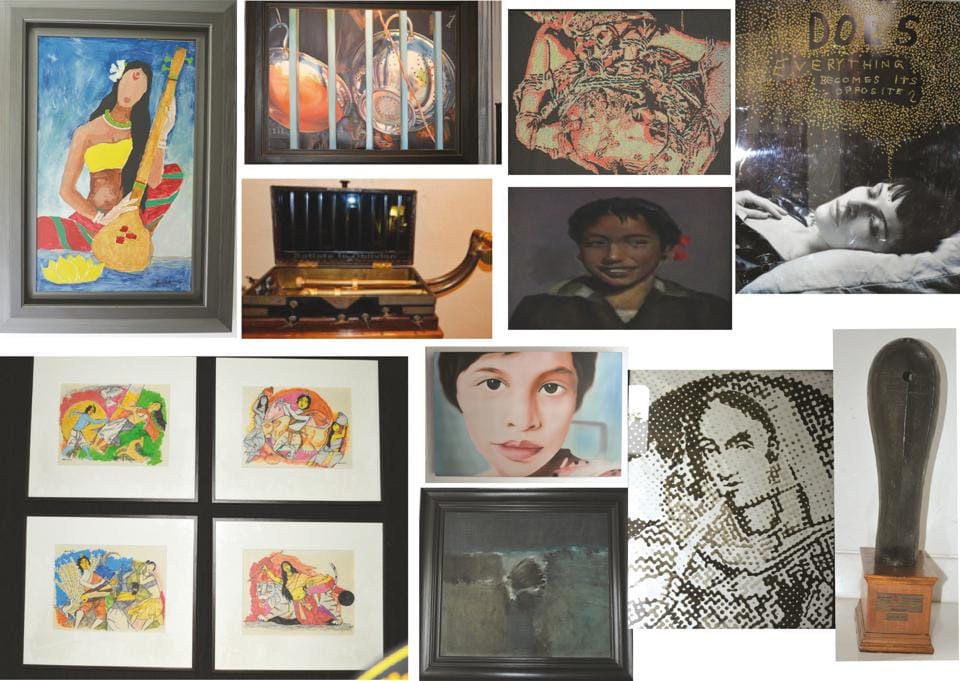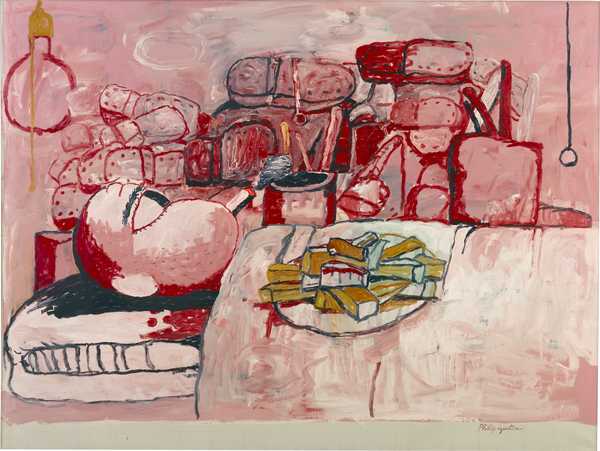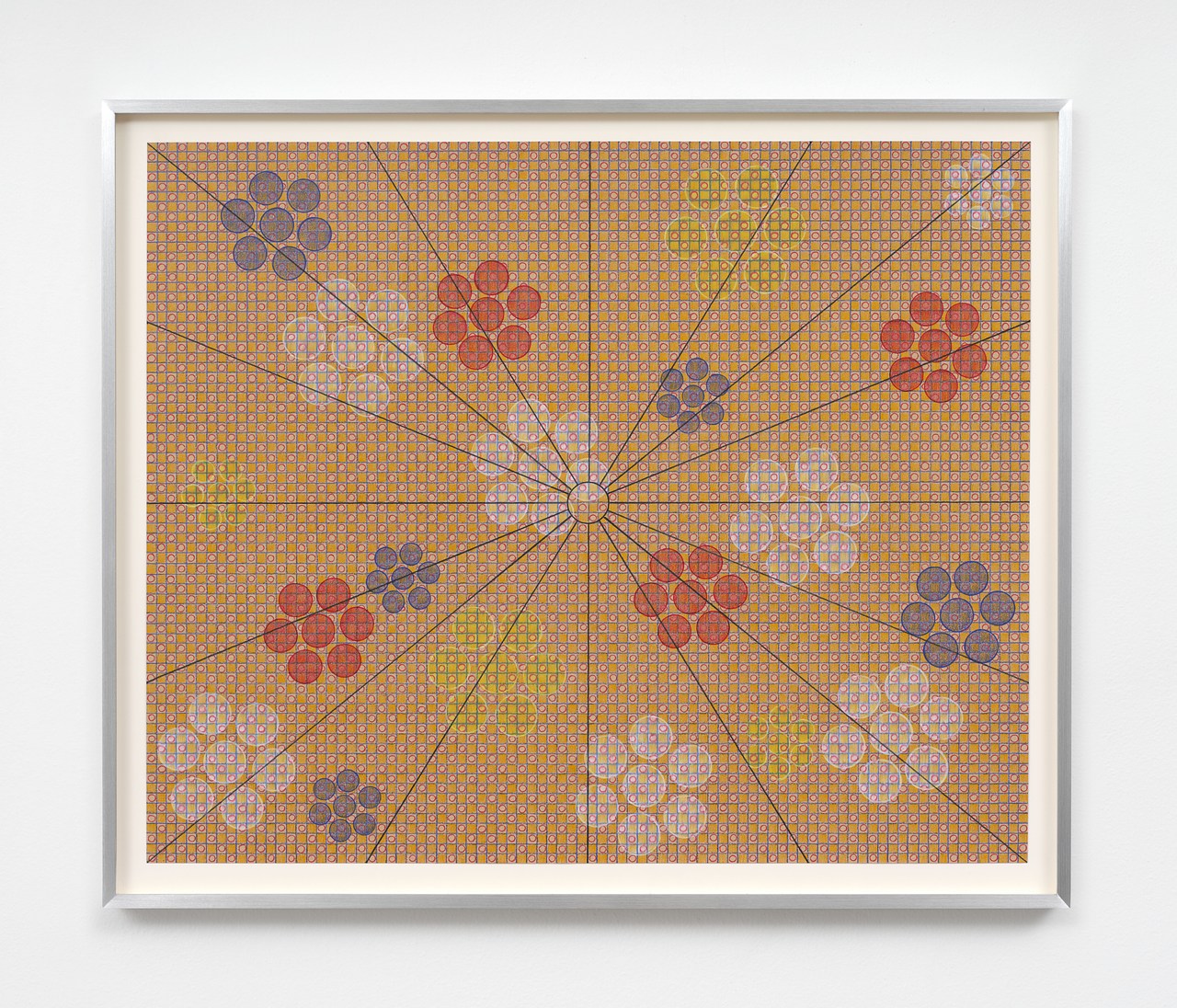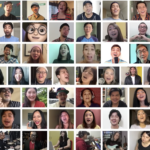2016/1963
2016 - Painting (Painting)
Diptych, each panel: 76.2 x 86.36 cm.
Titus Kaphar
Although the objects depicted in Titus Kaphar’s diptych 2016/1963 might not be immediately recognizable, the work’s title and the inscriptions ‘Alabama 1963’ and ‘North Dakota 2016’ reveal their use as tools of brutal force. The work with the inscription ‘Alabama 1963’ is a painting of the nozzle of a high-pressure water jet that the Birmingham Police used against black protesters, including children, during a non-violent campaign against racial segregation led by Martin Luther King JR. during the civil rights movement. The second painting depicts the nozzles used against protestors that in 2016 opposed the plans to build the Dakota Access pipeline near the Standing Rock Indian Reservation, many of whom were seriously hurt and left soaking wet during freezing temperatures. In both instances, the footage of the police’s inhumane response to non-violent protesting was broadcast globally, and these images have remained as a scar in our shared consciousness. Speaking to the longstanding impact of these acts of racially-driven cruelty, 2016/1963 is a chilling reminder that the systemic brutality endured by people of color during the civil rights movement is not something that solely remains in the past.
Titus Kaphar’s work is often discussed as socially and politically oriented, however, the artist describes it as a series of deeply personal responses to situations, narratives or histories. He is best known for revisiting historical forms of representation, primarily paintings, and modifying them—cutting areas out, painting over subjects, slashing, wrinkling, layering, and stitching elements out of or onto a painting. Through these formal interventions, Kaphar reveals subjects and narratives that were previously hidden or made peripheral. At the core of his interrogation of the past is the need to address how black bodies and other bodies of colour have been historically either invisiblized or represented as inferior, enslaved, imprisoned, powerless—never as the main subjects. Rather than undoing this problematic history, he brings it to the present and puts it to question by redirecting our gaze towards those subjectivities that have and continue to be excluded and inferiorized.
Colors:
Related works sharing similar palette

© » KADIST
Adrien Missika
2013Adrien Missika follows in the footsteps of the Brazilian landscape architect and artist Roberto Burle Marx (1909-1994), a designer of gardens, parks and promenades who introduced modern landscape architecture to Brazil...

© » KADIST
Natasha Wheat
2011Natasha Wheat’s Kerosene Triptych (2011) is composed of three images, one each from the digital files of the Library of Congress, the Smithsonian Institution, and the Field Museum tropical research archive...

© » ARTS EQUATOR
Weekly Picks: Singapore (25 February – 3 March 2019) | ArtsEquator Thinking and Talking about Arts and Culture in Southeast Asia Weekly To Do February 25, 2019 Still Life by Checkpoint Theatre , opening 28 February, 72-13 Mohammed Sultan Road What happens when an artist picks up her paintbrush after a long hiatus? Does the body still remember what has been lived? Or are the senses dulled by time, the joints fused with experience? Still Life is an affecting look at life and art-making...

© » KADIST
Koki Tanaka
2013This artwork was part of a group of projects presented in the Japanese Pavilion at the Venice Biennale in 2013...

© » KADIST
Shahryar Nashat
2015Employing both the High Modernist technique of abstraction and monochronism, as in the work of Lucio Fontana and Yves Klein, and bodily states of fetishization, Yea High (sweetpreparator) reworks the art historical canon of movement and the body to consider flesh as a physical construction of man-made matter...

© » KADIST
Gan Chin Lee
2019In Studies of Chinese New Villages II Gan Chin Lee’s realism appears in the format of a fieldwork notebook; capturing present-day surroundings while unpacking their historical memory...

© » KADIST
Prabhakar Pachpute
2014“Dark Clouds Of The Future” is a cinematographic video animation of the abandoned gold mine in Brazil, Serra Pelada (“Naked Mountain”)...

© » KADIST
Gareth Moore
2006Uncertain Pilgrimage is an ongoing project in which Moore draws from his unplanned travels in recent years...

© » KADIST
Matthew Angelo Harrison
2016In Bodily Study of Unthinking Groups, Harrison combines two disparate materials into one stratified stack: automotive clay (used in detailing cars) forms the earthy base, while fragments of zebra skull become imbedded in this falsified soil...

© » KADIST
Anju Dodiya
2022The Shedding by Anju Dodiya is part of a series of mattress paintings the artist creates using fabric stretched on padded and shaped boards...

© » KADIST
Jason Meadows
2009The Striation Scrap Lamps (vertical and horizontal) although functioning as utilitarian objects also represent Jason Meadows’s interest in a certain kind of crafted sculpture...









